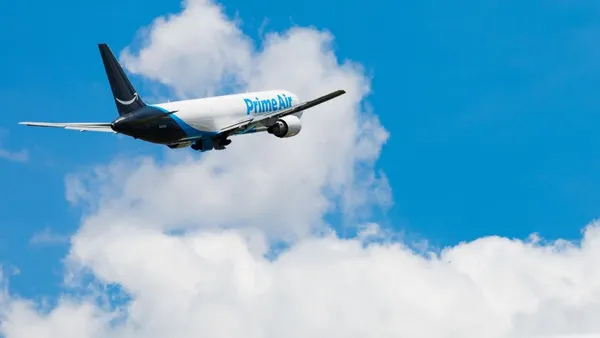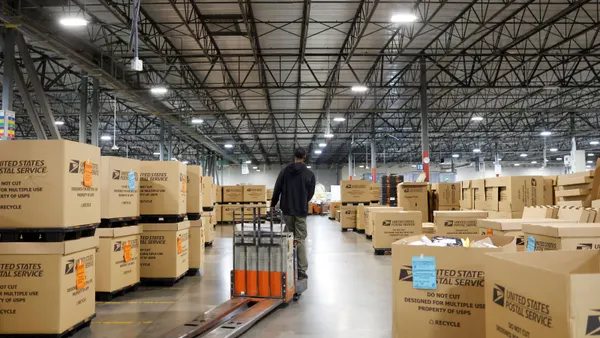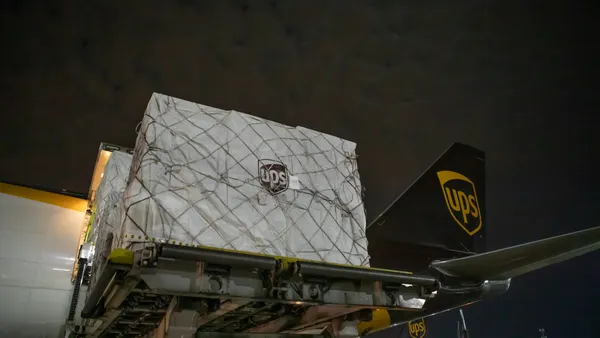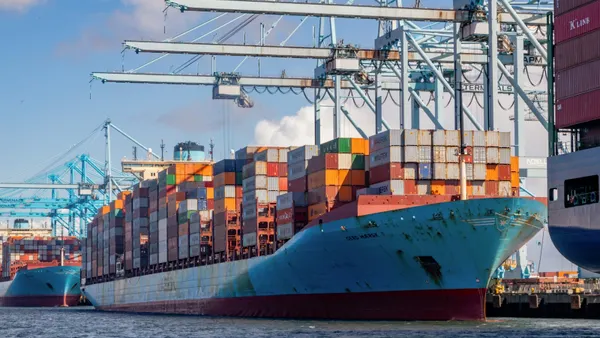Dive Brief:
- DHL Express' U.S.-destined volume declined in Q3 due to higher tariffs and the end of the country's de minimis exemption, according to the company's earnings results.
- The carrier's flagship service, Time Definite International, saw U.S.-bound billed weight plummet 32% year over year in the quarter, per an earnings presentation. The U.S. eliminated de minimis, which allowed sub-$800 imports to enter the country duty and tax free, on Aug. 29, exposing low-cost shipments to new tariffs installed by President Donald Trump's administration.
- Despite the volume pressures, DHL Express saw earnings before interest and taxes tick up 1% year over year in Q3. The company attributed the results in part to pricing adjustments and capacity management.
Dive Insight:
The end of the de minimis exemption has sparked customs hangups, postal restrictions and pricing pressures for companies as they attempt to adjust their supply chains to the new U.S. trade environment. Business-to-consumer shippers are particularly exposed, as they are typically sending more shipments that historically would have qualified for the exemption than business-to-business shippers.
"So, particularly the very low-value B2C stuff has seen the impact, partially also because customers are then changing to different forms of transporting B2C into the U.S., but we have seen more resilience on the B2B side," DHL Group CFO Melanie Kreis said in a Q3 earnings call Thursday.
Even if the Supreme Court strikes down Trump's ability to impose tariffs based on the International Emergency Economic Powers Act, DHL Group CEO Tobias Meyer doesn't envision a rebound in business-to-consumer volume. That's because "there are other legal grounds that the president could use to impose tariffs," Meyer said during the call.
In the face of U.S. disruptions, DHL Express said in its results it has "an opportunity to grow on trade lanes with underutilized capacity and improve network imbalance." The company is also prioritizing cost savings and volume tweaks in its air network and improved productivity in its ground operations and hubs.
"I think we have been able to deal with [de minimis' end] very effectively by adjusting and shifting capacity," Meyer said.















